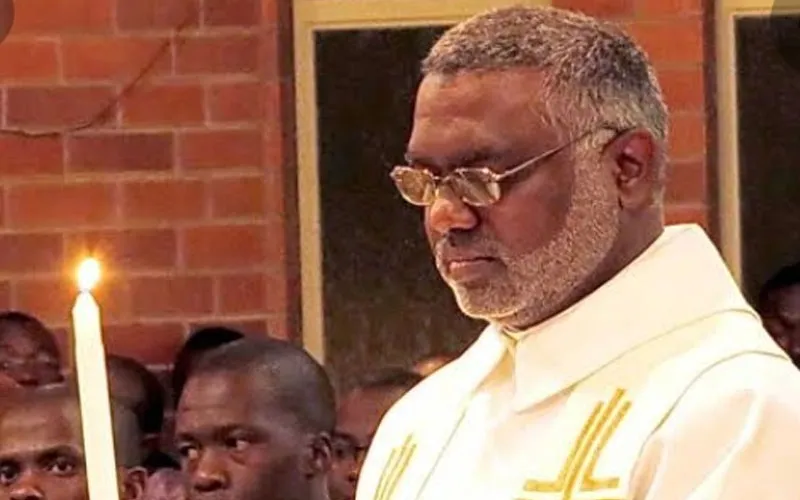“There are few English-speaking communities and this is great for the inculturation of the faith,” he clarified, and added, “There's a lot of beauty in the place.”
Mons. Frank recalled his recent visit to the South African Diocese saying, “I had a reason to travel through parts of the Diocese recently, long before, well, weeks before this appointment, and was just amazed at the beautiful places around in the Diocese.”
“There are challenges and scandals that might have to be addressed. There is this great beauty in the place and a deep faith among the people, which is to be celebrated, so I'm not overwhelmed by the difficulties and the challenges,” the South African Bishop-elect told ACI Africa December 17.
Born in August 1966 in Pietermaritzburg in South Africa’s Durban Archdiocese, Mons. Frank made his perpetual vows as a member of OMI on 4 January 1998 and was ordained a Priest on 21 August 1999.
He received his Bachelor of Science (1988) and Master of Science in physics (1991) from South Africa’s KwaZulu-Natal University. Mons. Frank completed his studies in philosophy at Saint Joseph's Scholasticate (1993-1995) and his studies in theology at the Rome-based Pontifical Gregorian University (1995-1998).
(Story continues below)
After his ordination, he served as Parish Vicar and Parish Priest in several Parishes in the Archdiocese of Durban (1999-2004).
In 2004, he studied in Pune, India, for a Master's degree in philosophy. On his return to South Africa, he served as Pastor of two Parishes, lecturer, head of the philosophy department (2006-2014) and president at Saint Joseph's Theological Institute (2015-2018).
Until his appointment, Mons. Frank has, since 2018, been the Provincial Superior of OMI in South Africa.
Asked about his priorities, Mons. Frank said, “I don't think I had too much of that opportunity yet. Certainly, my being one with my brother Priests in the Diocese and getting to know them and working with them and understanding their aspirations and their pastoral initiatives and application, getting to know them personally, that will certainly be one of my priorities.”
“Understanding the administrative needs of the Diocese and communication with the people creating that relationship, I think is very important,” he told ACI Africa, adding that one other priority will be to “brush up on my Zulu that I learned 20 years ago.”
“I'm a bit embarrassed that my Zulu is very poor; but that's certainly one of my very first priorities, to start working on that again,” he told ACI Africa.
Despite the challenges posed by the COVID-19 pandemic, Mons. Frank intends to revive pastoral activities in the South African Diocese.
“As soon as COVID-19 permits, I will engage with the Clergy that are involved in all these activities and the lay people and the many groups and Sodality that are very powerful and active,” he said.
He added, “I don't think that reviving them is going to be very difficult. I think that desire to have all those events again is in the hearts of the people. So, it's going to work easily, I think.”
“I'm looking forward to having a holiday at this time. But I don't know how much of a holiday that will be because there's much work to do and lots to think about now, lots to plan,” Mons. Frank said.
Asked about that date for his Episcopal Ordination, he said, “I have no idea; I think there are quite a lot of people and groups of people to be consulted before a date is set.”
Mariannhill Diocese was erected as an Apostolic Vicariate on September 10, 1921 and elevated to the rank of a Diocese on January 11, 1951. The Diocese measures 12,612 square kilometers with a population of 329,575 Catholics, according to 2017 statistics.
Jude Atemanke is a Cameroonian journalist with a passion for Catholic Church communication. He holds a Bachelor’s Degree in Journalism and Mass Communication from the University of Buea in Cameroon. Currently, Jude serves as a journalist for ACI Africa.








